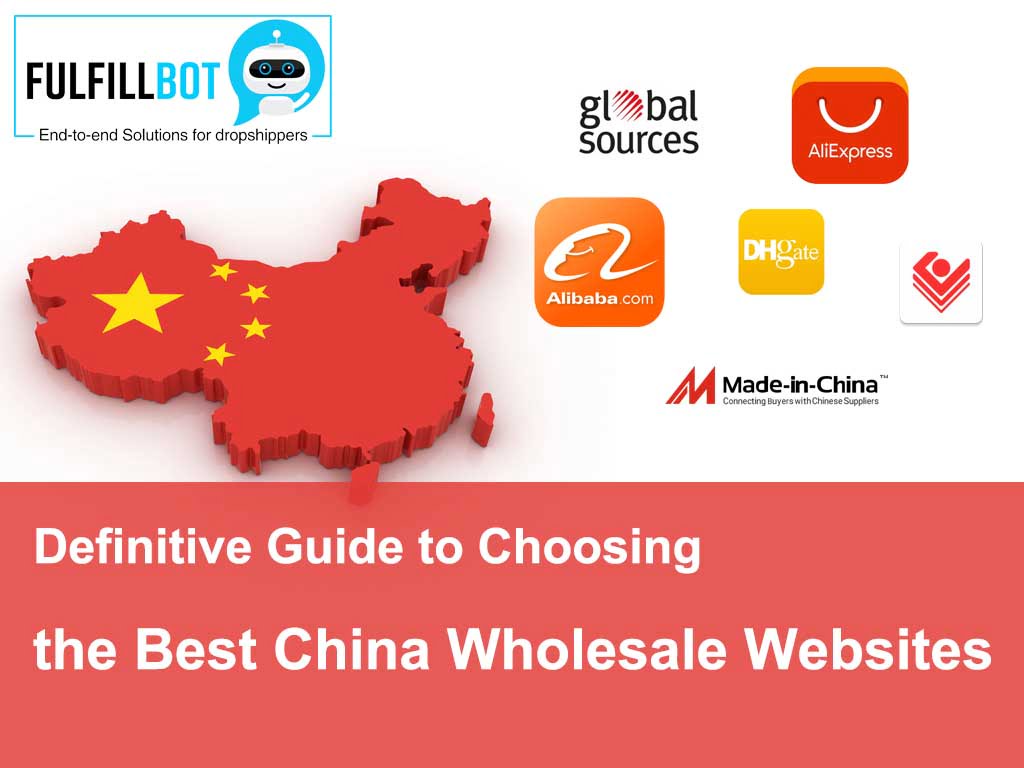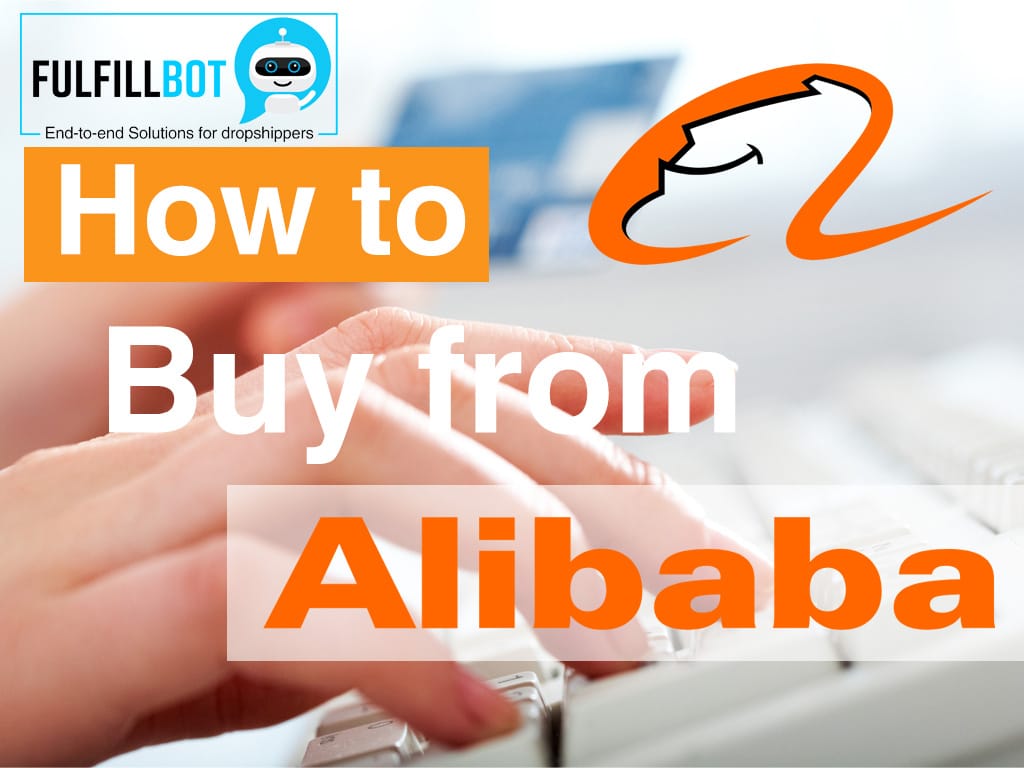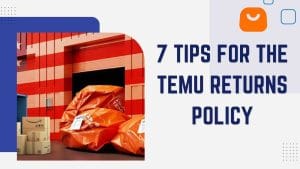As an importer, you may have different questions in mind? One of them might be – which is a suitable platform between Alibaba and 1688? It turns out you aren’t alone in the query. Many new importers are often puzzled about which option is best.
Alibaba and 1688 are famous e-commerce platforms with millions of customers globally. However, the platforms offer contrasting purposes and cater to different buyers.
Deciding between them depends on your circumstances and needs. Alibaba and 1688 are technically the same brand but in different languages. 1688 is Alibaba in Chinese. They are similar as they are distinct.
This article compares the two options and highlights how to get around both brands. We provide insights on price, location, convenience, and more information to ensure you make an informed choice. Here, we offer an in-depth overview of Alibaba and 1688 and include valuable tips at the end of the article.
What Is Alibaba – Complete Overview!
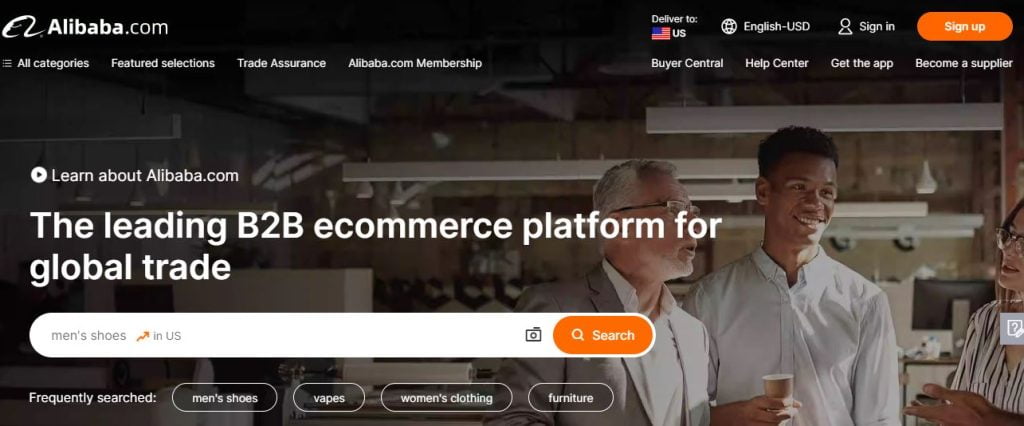
Alibaba was launched in 1999 by Jack Ma. It is now one of the biggest global B2B online platforms. The site is a reliable option for distributors to get goods manufactured in China. Alibaba connects Chinese businesses to consumers and wholesalers around the world.
Many of the goods listed on Amazon are obtained from Alibaba. With over two decades in the industry, Alibaba has added a lot of layers. So, you get a glimpse of the brand and if it suits your business needs, here are the features of Alibaba:
Pros of Alibaba:
Alibaba has some features that set it apart from the competition. Here are the perks Alibaba users get by choosing the platform:
1) Product Quality
Many Amazon stores get their products from Alibaba. Amazon has high-quality standards, which infers Alibaba is a trusted platform for top-quality goods. However, always go over suppliers’ ratings and reviews. Alibaba is a vast marketplace with a higher likelihood of scams.
2) Trade Assurance:
Alibaba’s trade assurance is a premium service. The service lets users file dispute cases when they get products that are poor quality, are missing, or need to be delivered on time.
Note: Buyers have to make advanced payments to get their orders.
3) Customization Possibilities and Negotiation:
Many of Alibaba’s products have customization possibilities. If your brand wants to get goods, you can modify them to fit your brand. Alibaba’s supplier offers this option. More so, there is an option to negotiate a business agreement. At Alibaba, buyers and sellers can negotiate aspects of the transactions.
4) Payment Method:
The number of payment methods remains a prominent issue with many dropshippers. Fortunately, Alibaba outperforms in this section. The platform offers accessible payment options like wire transfer, PayPal, Visa, Mastercard, and American Express. Also, Alibaba provides escrow payment protection. Alibaba won’t release your deposit to the seller until you receive the product and are pleased.
5) Supports Several Languages:
While Alibaba is a Chinese company, its goal is to reach the international market. Hence, the site is in English. However, the company also supports being more inclusive in French, Portuguese, Spanish, and others.
Cons of Alibaba:
Much like all e-commerce platforms, Alibaba could be better. Some sectors could use an upgrade. Here are the downsides of the renowned Alibaba:
1) Spotting Manufacturers:
Alibaba is a massive marketplace with suppliers, manufacturers, and buyers. There are no clear distinctions between the companies and traders on Alibaba. This unseemingly benign issue can create problems with suppliers, as you don’t have much control over the quality of products you want.
2) Lack of Transparency:
Transparency in Alibaba pricing is a common problem. The prices are usually different from what you find on search results. Instead, you must message the supplier to know the price and minimum order quality.
3) Poor Mobile App:
While Alibaba has a decent user interface for its site, it falls short in several sectors. The app is disorganized and laggy. As one of the biggest e-commerce enterprises, Alibaba can do better. Many users believe the lack of pressure to change it is due to their monopoly on the market.
4) High Minimum Order Quantity:
Connection to buyers and sellers overseas comes with many costs. These costs include shipping, warehouse, and customs. Hence, most suppliers prefer higher minimum order quantity (MOQ) and bulk orders. For newbies, this factor might discourage you as it prevents you from purchasing goods due to failure to meet the MOQ. However, there is always room to negotiate with suppliers to reach a consensus regarding the minimum order quantity.
What Is 1688 – Complete Overview!
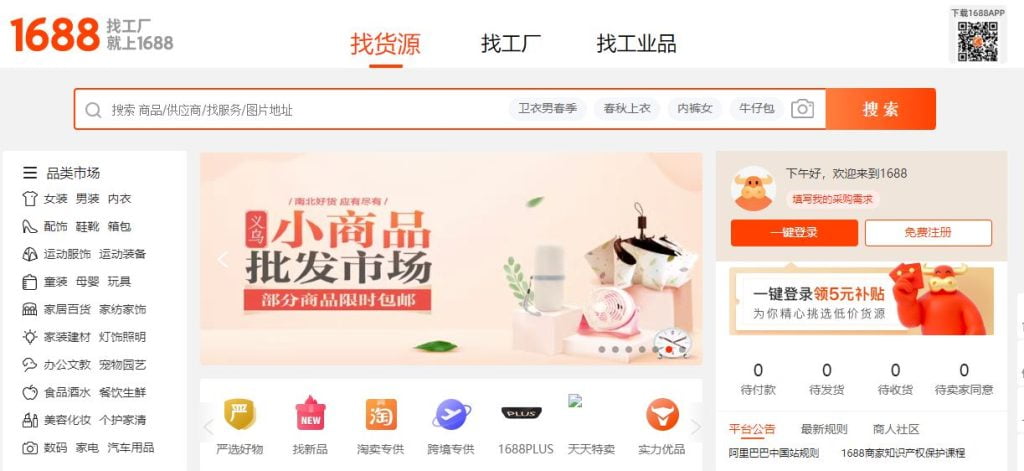
Now that you have a little insight into what Alibaba is all about and the benefits of a partnership, what about 1688? Well, it was launched in 1999, just like Alibaba. However, unlike Alibaba, this site has never been able to partake internationally. 1688’s services are limited to the domestic Chinese market. In simpler terms, 1688 is the local version of Alibaba.
Most Chinese buyers camp in 1688. You hardly see a lot of Chinese buyers at Alibaba because the market is more into the international market than the local one. More so, the prices are much cheaper than what we typically see in the Alibaba scene.
That’s why many dropshippers also opt for 1688’s services to stabilize their store. That said, here are the pros and cons of the dropshipping platform to gather insights into the services it offers:
Pros of 1688:
What makes 1688 a favorite? Here are some of the perks that make 1688 a preferred option among several dropshippers:
1) Pricing:
1688 is an easy favorite because of its affordable pricing, as it has some of China’s cheapest goods. Compared to Alibaba, 1688 has better pricing. Alibaba’s prices are targeted towards the foreign marketplace. Hence, there are extra expenses like shipping. On the other hand, 1688 focuses on the local market, devoid of these charges.
2) Price Transparency:
A major concern regarding Alibaba’s pricing is they aren’t transparent. The prices highlighted when searching for a product are usually not the actual price. When buyers contact suppliers, the prices are typically several leagues higher. However, that was not the case in 1688.
At 1688, the store lists accurate pricing. The buying experience is similar to that of Amazon. You can even request a refund if you don’t get your products on time.
3) Product Variety:
1688 has more variety than that of Alibaba. The lower variety at Alibaba is because of the number of sellers. The majority of Chinese sellers are from 1688. They don’t use Alibaba because they don’t need to. Mainland China is enough to make a profit. More so, most of the sellers lack English-speaking staff. So, the number of Chinese suppliers is higher and provides more variety.
4) Customer Support and Mobile App:
While Alibaba is a much bigger hegemon, 1688 has a far superior mobile interface. Aside from the mobile interface, customer service also provides quick responses. The reason behind the quick response time is because the labor is cheap. Hence, you can resolve your order with the platform’s customer service if you have a problem.
Cons of 1688:
While 1688 is an excellent dropshipping platform, it has its fair share of drawbacks. So, we have to shed some light to know:
1) Issues with Quality:
While 1688’s products are affordable, they aren’t always at peak quality. The products in 1688 were for the Chinese market, and the products were sometimes hit or miss. You might find high-quality products that are different from what you expect.
2) Lacks English Support:
One of the biggest issues with shopping at 1688 is the need for more English support. Contrary to Alibaba, which supports several languages, 1688 only supports Chinese. While you can install a plugin that auto-translates the information on the site, they are often inaccurate. Hence, you might need help grasping crucial details about products.
3) Export Problems:
1688 focuses primarily on the local market, so getting an exporter can take time and effort. Most don’t have a license to export. There is a way to find a way around the issue, but it can take extra time. If your MOQ is too low, the seller may refuse your offer.
4) Experience:
As a foreign dropshipper, you might not receive the formalities at Alibaba. The supplier lacks foreign experience and knows how to forge international contracts. Moreover, the language barrier can also be a notable obstacle as many don’t speak and grasp English.
What Are the Major Similarities Between Alibaba and 1688?
These are online marketplaces that provide a medium for Chinese manufacturers to connect with buyers. While both target slightly different markets, they have similarities. Here are the similarities between Alibaba and 1688:
1) Belong to the Group
Alibaba Group, one of the biggest global enterprises, owns both Alibaba and 1688. Hence, both platforms share access to similar expertise and resources.
2) Price Negotiation
It is a common factor between both 1688 and Alibaba. Especially in larger quantities, you can negotiate the price with the manufacturers. This feature offers buyers better product deals and reduces the overall purchasing cost.
3) Multiple Sellers
Alibaba and 1688 have several sellers on their platforms. The platforms don’t manage the stocks like some e-commerce sites do. On these platforms, the sellers own their stocks and follow through with order fulfillment. Hence, buyers can receive various products from the platform’s sellers.
4) Fraud Detection Measures
Finally, 1688 and Alibaba include measures that help detect fraudulent accounts on the platforms. Hence, these measures ensure buyers trust the sellers and products on the platform. It reduces the risks of coming across low-quality and counterfeit goods.
What Are the Major Differences Between Alibaba and 1688?
Now that we have addressed how these both platforms are similar, it is time to address how they differ.
1) User Interface
One significant difference between them is the user interface. While Alibaba is the global platform with a wider reach, 1688 is the site with the better user interface. The UI is decent enough to make transactions but falls short compared to platforms like eBay and Amazon. Alternatively, 1688 has a more aesthetic user interface with seamless navigation.
2) Payment Options
Alibaba targets the international audience, which explains the need for the multiple payment options it supports. You can access options such as PayPal and all the major cards such as American Express, Visa, and Mastercard. On the other hand, international payment is quite cumbersome for 1688 sellers. The available methods are geared toward the local audience, such as local bank transfer, WeChat, and Alipay, and all target the local marketplace. If you want multiple payment options, Alibaba takes it.
3) Pricing
The pricing on Alibaba and 1688 vary widely. At Alibaba, the prices climb insane due to additional expenses such as shipping, warehouse, customs, and logistics. The products have higher costs at Alibaba than they did in 1688. Since 1688 focuses on the local market, there are no extra expenses as there are with Alibaba. The suppliers/manufacturers highlight low prices that remain enough to keep their businesses afloat.
4) Language
Language is a significant aspect to consider when comparing Alibaba and 1688. Alibaba was designed to connect Chinese sellers to foreign buyers; hence, their languages are varied. The site is in English but also supports several other languages.
Alternatively, 1688 is only available in Chinese. If you are a buyer, you might be lost on the site. And even when you opt for the translator plugin, the translations aren’t always correct. This feature is not a drawback as the platform targets the local market.
Step-by-step Process to Buy from the Alibaba
Grasping how to buy from Alibaba helps speed up purchases and run your store in no time. So, here are the necessary steps to take to place a buy order at Amazon:
• Visit Alibaba.com
• Enter Your Information
• Search for Suppliers
• Make Contacts with Your Preferred Supplier
• Negotiate Price
• Check Your Order
Alibaba allows customers to place orders for free. You don’t need a seller’s permit, a company, a website, or related credentials. The only necessary thing that Alibaba sellers require is that you can buy consistently and in bulk. That said, let’s explore each step on our list:
Step 1: Visit Alibaba
Once you know your niche and the goods necessary for your store, visit Alibaba.com and create an account. The sign-up process is straightforward and often takes only a few minutes.
Note: It is not compulsory to own an Alibaba account to make supplier searches and place a buy order. However, if you want to use Alibaba’s other features, such as trade assurance, you must sign up.
Step 2: Enter Your Information
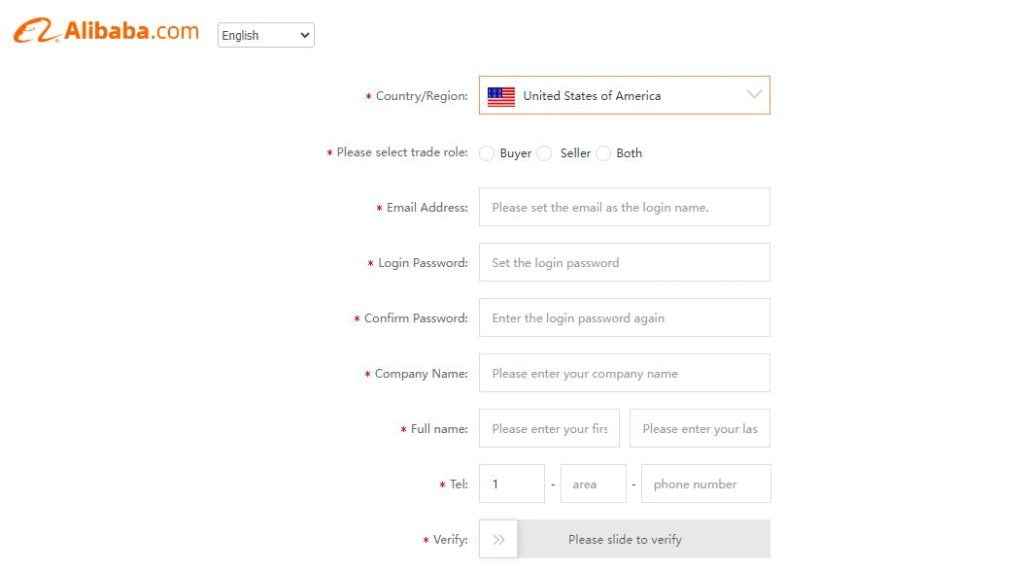
Before you create an account at Alibaba, it is best to make separate email accounts. As an active user on Alibaba, you will get tons of emails. So, you need an email solely for them. Input the email you get for verification. Alibaba’s sign-up process has three tiers—verification, information, and the last step. Enter all the necessary information, and you will be ready to go.
Note: During registration, if you don’t yet have a company name, you can simply add a placeholder till that changes.
Step 3: Supplier Search
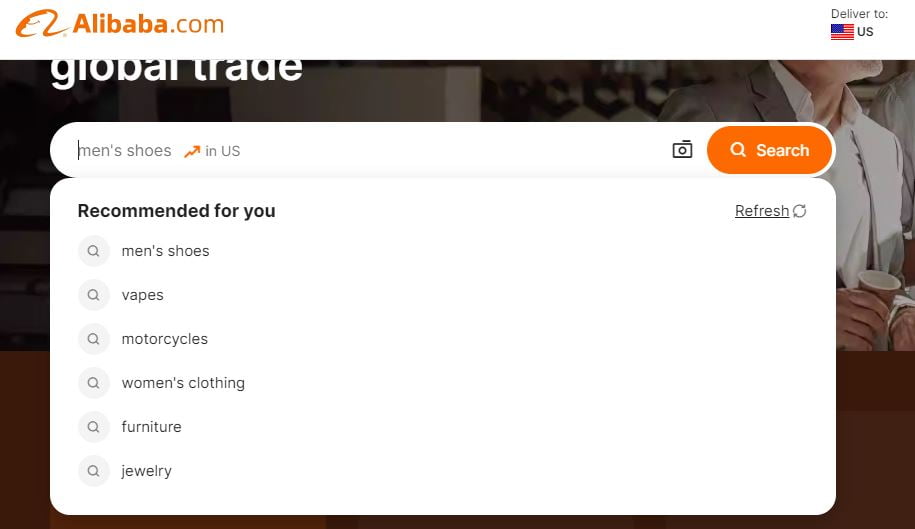
After registering with Alibaba, it is time to find a potential supplier in your niche. This step requires you to familiarize yourself with Alibaba’s search and filter features. When you want a particular product, input the keyword on the search bar. Also, you can connect to manufacturers instead of suppliers by changing the search bar settings from Products to Manufacturers. This feature limits the search results on your niche to manufacturers only.
Once you have input the prompt and pressed search, Alibaba will reveal a list of probable suppliers and manufacturers. The search results highlight what they offer when the order is ready and whether they support customizations. You should watch for the minimum order quantity (the minimum amount of products that can be ordered from them). It is not a good match if you want 100 items and the supplier/manufacturer’s MOQ is 150.
The rule of thumb is that the more your order, the lower the price. You should know that Alibaba lacks price transparency, too. The price you see while searching for the supplier is usually not the real price, which leads us to the next step—contact the supplier.
Step 4: Contact the Supplier
One is bound to catch your eye from the long list of products. When that happens, contact the supplier behind the product. Product pages often have contact supplier features; some allow you to chat directly. Ensure you do your part by finding enough information about the sample and obtaining a sample.
You are probably wondering how to get a sample before you place an order. Most suppliers are willing to send samples. If the supplier supports samples, you will find the Get Samples link on their Alibaba product page. All of Alibaba’s suppliers should be willing to send a product sample. If the supplier refuses, don’t partner with them.
Tips to Follow When Contacting a Supplier
The samples might attract a decent price tag. However, getting a few samples to see the supplier’s quality is better than getting a large order and being disappointed. That out of the way, here are some crucial bits you should know while you contact your supplier or manufacturer:
• Sample prices: You have to pay for samples in most cases. Alibaba typically displays the cost of a sample per unit. Ensure you consider shipping and other expenses, though.
• Minimum Order Quantity: When hoping to form a contract with a supplier, it is crucial to know the minimum order quantity that’s considered a full order.
• Narrow down the production pricing: In many cases on Alibaba, the pricing is displayed as $2 – $3 per unit. However, you need to know the actual cost, so verify with the supplier which is the 2 or 3. Note that customization might accrue extra costs.
• Production Time: As a store owner/dropshipper, it is vital to know how long it will take to assemble an order. Also, when you do, factor in the shipping time as well. Grasp that overseas shopping can take many weeks or even months to get to you.
• Payment Requirements: Ask about how you are going to pay. Also, ensure to keep the payments within Alibaba. And as the partnership gets stronger, you can ask if they can allow multiple payment methods.
Note: When you contact the supplier, ensure you are concise and professional. Suppliers get many inquiries daily, so you need yours to stand out.
Step 5: Negotiations
After the sample and the supplier’s quality match your expectations, it is time to negotiate pricing with the seller. Most Chinese sellers are open to price negotiations. Moreover, engaging several suppliers can also offer leverage when negotiating the price.
However, your ability to negotiate significantly depends on your order volume. If it is your first transaction and your order volume is small, you will have limited purchasing power. Also, note that the negotiations don’t include the shipping cost, so you have to take note of that as well. Lastly, ensure you don’t negotiate the price of your sample. This move is often considered inexperienced and can leave a bad first impression.
Step 6: Check Your Order
Before your order gets to the sea, you want to ensure that you get an inspection company like the Asia Inspection Company (QIMA) to check them. This step is crucial as it is expensive to return after the goods are made overseas if they don’t match your desired quality. Once you receive your goods, check to ensure they meet all your agreed-upon specifications. You can contact Alibaba to get a refund if there are product issues.
Step-by-step Process to Buy from the 1688
When considering what platform works best for you between Alibaba and 1688, you must compare how they allow buyers to place orders. Here is an overview of the steps you have to take to buy from the 1688:
- Use an auto-translator plugin
- Search for your desired product using keywords
- Peruse the supplier
- Contact the supplier and negotiate the price.
- Secure the payment and manage your order
Step 1: Use An Auto-translator Plugin
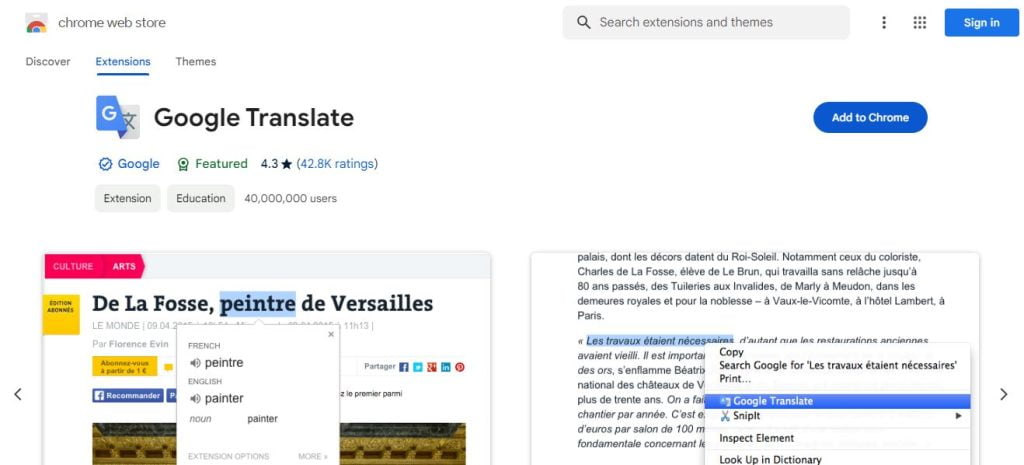
1688 targets the Chinese market, so the site’s language is Chinese. Unless you understand Chinese, you want to translate the site’s contents so you can place orders and properly scrutinize local Chinese suppliers. Here is how to get an auto-translate plugin:
- Get the Chrome web browser
- Visit the Chrome web store and search for the Google Translate Chrome Extension
- Add the extension to your browser by tapping “Add to Chrome.”
- A confirmation window will appear, and you click the “Add Extension”.
- Visit 1688. An automatic pop-up will appear, suggesting you translate the site into English. If the pop-up doesn’t show, tap on the Google Translate Chrome Extension option.
Step 2: Search for Your Desired Product Using Keywords
You can discover your product in 1688 through different methods. First, image upload—the web recognition feature matches the product’s properties in the picture to those on the site’s database. You can also use English or Chinese keywords to get what you want.
Step 3: Peruse the Supplier
Regarding shopping in 1688, the rules differ from those on most mainstream e-commerce platforms. Search pricing listings for your desired products might feature lower prices. However, most suppliers often use low prices to lure customers and don’t reflect the total cost. Hence, you must engage the supplier to get actual pricing.
Minimum Order Quantity (MOQ) is also another factor to note. The MOQ that’s displayed on the product listing is usually accurate. The value of MOQ is the minimum number of products you can make per order. So, if your order number is less than the supplier’s MOQ, there won’t be an agreement.
Finally, the supplier should be properly perused to determine their product availability. Some of the 1688 listings are holding spots and often persist with the absence of products. Hence, it would help if you communicated with the supplier beforehand. Ensure you vet the suppliers properly to get the value you want. You can watch out for the employee count and office space to gather insight into the company. Also, watch out for the Delivery Guarantee badge on their page.
Step 4: Contact the Supplier And Negotiate the Price
When forging contracts, contacting the supplier and negotiating price is important. This move ensures you get the best out of the deal. The most popular platform is Altalk. The platform works similarly to WhatsApp and WeChat. You can also contact suppliers with WeChat or without opening an Altalk account.
Step 5: Secure the Payment And Manage Your Order
The final step for every order in 1688 was to make payments and develop a close-knit relationship with the supplier. If you have a 1688 account, there are multiple payment options you can opt for. However, you can manage the transactions outside the platform if you don’t have an account.
Ensure you iron out every step that takes the products from China to your doorstep. You can negotiate the 30/70 deal: 30% upfront and 70% upon completion of the delivery. Also, ensure you have proper product inspection to get the best products before shipping.
Alibaba vs. 1688 – Which Platform is Suitable for sourcing?
Alibaba, the internationally acclaimed marketplace, boasts an expansive reach catering to a global audience. Alibaba stands out for its user-friendly English interface and numerous trade assurance policies, which safeguard international buyers. Given its focus on exports, Alibaba suppliers are typically well-versed in the nuances of international shipping and customs regulations, making it the go-to platform for businesses worldwide.
On the other hand, 1688 (owned by the same parent company as Alibaba, Alibaba Group) is China’s leading domestic sourcing platform. Its primary audience is in China, and hence the platform operates predominantly in Mandarin. The advantage of 1688 lies in its significantly lower prices due to its direct access to local manufacturers and wholesalers. It’s ideal for those who possess the ability to navigate the complexities of Chinese language and business practices, potentially through a sourcing agent or having their own offices in China.
Alibaba vs. 1688 – Which Platform is Suitable for Dropshipping?
Whether you opt for 1688 or Alibaba depends on your needs and circumstances. For instance, 1688 has more variety and lesser cost; however, forging contracts with Chinese sellers might be a hassle. If you want a quick route, you might prefer Alibaba. But if you are patient enough, 1688 is also a decent choice.
Both are crucial platforms for most dropshippers. Here are integral Dropshipping tips that will help you navigate the dropshipping space better:
• Supplier: Ensure a store score of >4.5 when choosing a supplier. Choose suppliers with gold and verified badges as it reduces the risk.
• Price: Evaluate the prices of different suppliers to ensure you get the best deal. Also, cross-check/scrutinize the customer reviews to get an insight.
• Automate Your Purchases with Agents: Buying agents are excellent time savers who help negotiate and get great deals while you wait. The one-time can’t be overstated. You can choose a reliable dropshipping agent like Fulfillbot to automate your sourcing operations.
FAQ for Alibaba vs. 1688
Alibaba vs. 1688 - Which Platform Is Safe and Reliable to buy from China?
Both Alibaba and 1688 are safe platforms as measures are taken to ensure the quality of the suppliers and that buyers are safe. However, Alibaba is safer between both platforms because it is a much bigger platform. Plus, they feature trade assurance and gold assurance.
Do You Get Trade Assurance Option in 1688?
1688 lacks any form of Alibaba’s Trade Assurance. So, if you want to add an extra layer of security, look for a sourcing agent. It is the recommended step if you want a reliable supplier.
Can You Use An International Currency at 1688?
Chinese suppliers in 1688 only supported payments in RBM(CNY). If you want to pay, you have to convert the funds to the accepted currency and make the transfer. You can also contact a buying agent, which will help handle these hassles.
Can You Change the 1688 Platform into English?
You can translate the contents of 1688.com to English by opting for the Chrome auto-translate extension from the Chrome store. Once you download the extension, add it to Chrome. This way, every time you visit 1688.com, a pop-up suggests you convert it to English.
Alibaba vs. 1688 - Which Platform Offers Simple Shipping Options?
Alibaba offers easier shopping than 1688 for international orders. Alibaba aims to serve the international market, so they are equipped with the right tools.
Final Thoughts
Choosing between Alibaba and 1688 boils down to what you prefer. 1688 was intended for the local Chinese market, so using it for foreign transactions can be a hassle.
But if you would rather not test your patience, you can opt for Alibaba. Both platforms offer incredible perks, making them some of the best global e-commerce platforms. Now you know everything about both sites and hope you make the right choice. Till next time!
If you plan to source from 1688, the best solution is to look for a Chinese agent to assist you with your procurement on the 1688 website, and we can help you with that.

